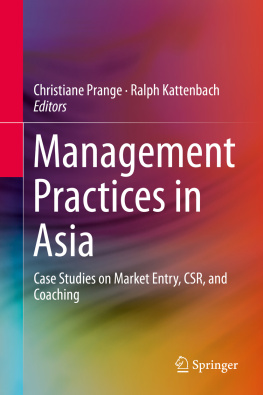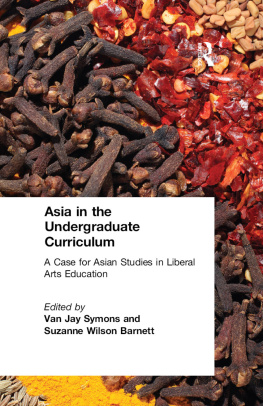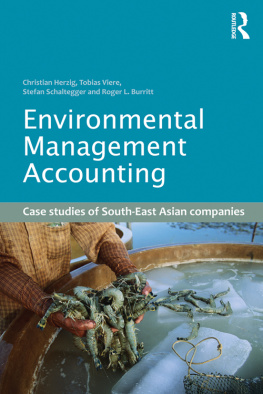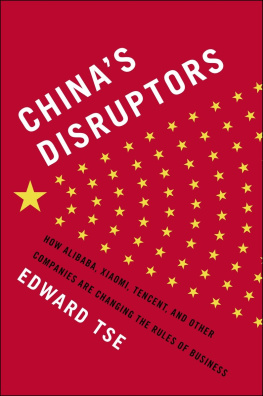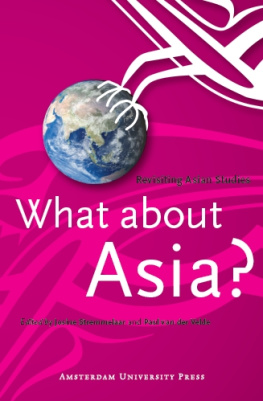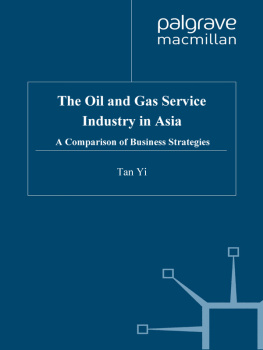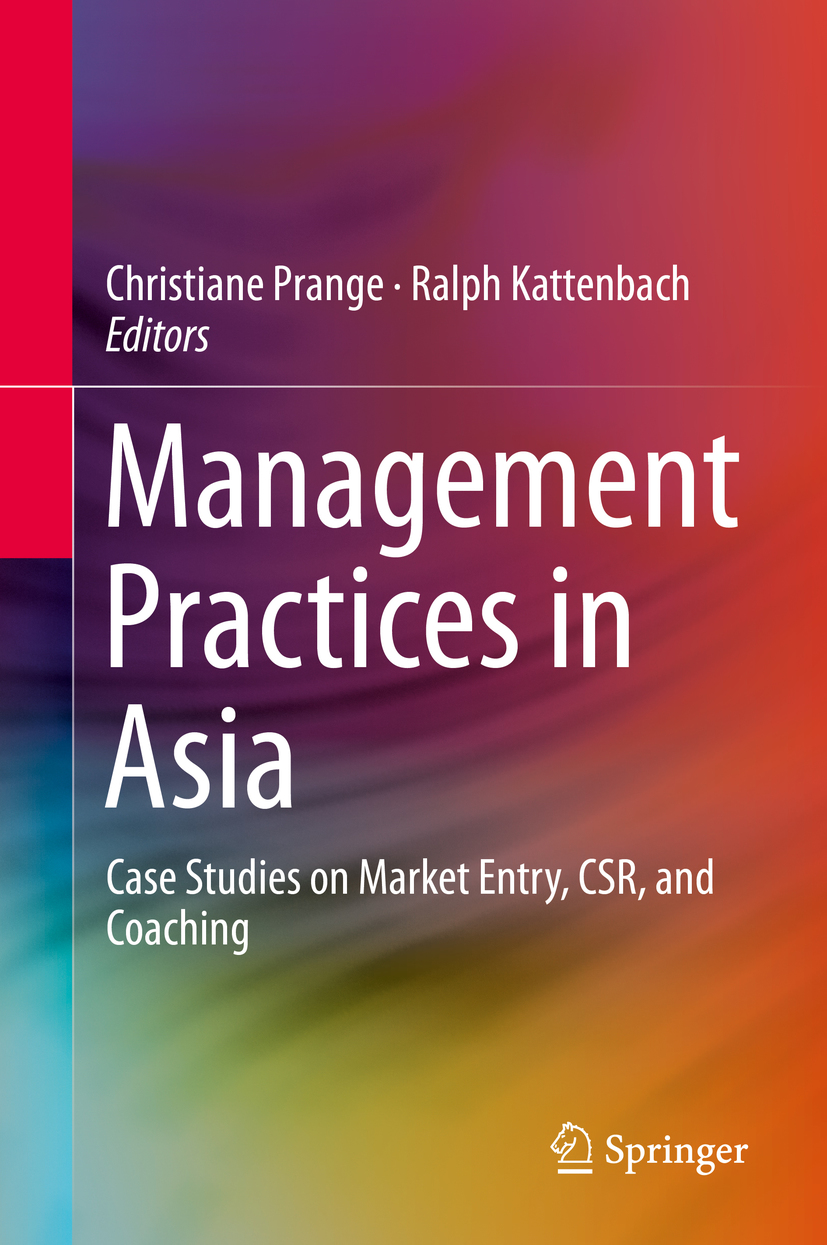Editors
Christiane Prange and Ralph Kattenbach
Management Practices in Asia
Case Studies on Market Entry, CSR, and Coaching
Editors
Christiane Prange
School of Economics and Management, Tongji University, Shanghai, China
Ralph Kattenbach
School of Economics and Management, Tongji University, Shanghai, China
ISBN 978-3-030-19661-5 e-ISBN 978-3-030-19662-2
https://doi.org/10.1007/978-3-030-19662-2
Springer Nature Switzerland AG 2019
This work is subject to copyright. All rights are reserved by the Publisher, whether the whole or part of the material is concerned, specifically the rights of translation, reprinting, reuse of illustrations, recitation, broadcasting, reproduction on microfilms or in any other physical way, and transmission or information storage and retrieval, electronic adaptation, computer software, or by similar or dissimilar methodology now known or hereafter developed.
The use of general descriptive names, registered names, trademarks, service marks, etc. in this publication does not imply, even in the absence of a specific statement, that such names are exempt from the relevant protective laws and regulations and therefore free for general use.
The publisher, the authors, and the editors are safe to assume that the advice and information in this book are believed to be true and accurate at the date of publication. Neither the publisher nor the authors or the editors give a warranty, express or implied, with respect to the material contained herein or for any errors or omissions that may have been made. The publisher remains neutral with regard to jurisdictional claims in published maps and institutional affiliations.
This Springer imprint is published by the registered company Springer Nature Switzerland AG.
The registered company address is: Gewerbestrasse 11, 6330 Cham, Switzerland
Contents
Part I Introduction
Christiane Prange
Ralph Kattenbach and Christiane Prange
Part II Aspiring Global Giants
Nomie Dominguez and Ulrike Mayrhofer
Joris ten Have
Farrah Almira Ali
Marc Poetzsch and Zheng Han
Part III Ethnocentrism Revisited
Quynh An Lu
Khoi Bui-Kinh
HeeJo Hannah Kim and Simon Fietze
Part IV Corporate Social Responsibility on the Move
Gwen van Driel
Astriani Dewanto
Marie-Therese Claes
Austin Chia and Prakash Singh
Amandeep Dhaliwal and Arunaditya Sahay
Pascal Wolff and Johannes Kern
Part V Coaching in Asia
Ralph Kattenbach and Mila Dorosh
Alex Couley and Julia Milner
Bettina Al-Sadik-Lowinski and Ralph Kattenbach
Annette Metz
Part VI Conclusion
Ralph Kattenbach
Christiane Prange
is a professor of Global Strategy at Tongji University, China and director of the AgileVentureLab, a global think tank focused on researching and applying agile principles to management and leadership, and helping companies and individuals to better cope with ambiguity and unpredictability. Christiane was educated in Germany (MBA), Geneva University, Switzerland, where she obtained her Ph.D., in France, University Lyon 3 where she received her habilitation (qualification to supervise research), and Harvard Business School benefiting from insights into team interaction and participant-centred learning. After several years in industry and consulting, she returned to academia and has lectured as a visiting professor with top business schools in more than ten countries, including Austria, France, Malaysia, Russia, Romania, and UK. In the last 20 years, she has also consulted numerous multinational companies on internationalization strategies, global innovation management, and agility. Her ideas are published in eight books and several articles in journals, such as, Organization Studies, Journal of World Business, International Business Review, and others. She regularly presents her work at international conferences and workshops.
It takes 10 hours to fly from Amsterdam to Beijing, 9.5 hours from New York to Mumbai, and 8.4 hours from Melbourne to Ho Chi Min City. Does that mean the world is becoming more integrated and interdependent with international trade made easier and smoother? Well, yes and no.
Yes, because with increasing globalization, countries have become more similarat least on the surface. Apple, Starbucks, Ikea, and McDonalds coin the face of metropolitan cities and reconfirm the image of millennium elites, exponentially more aware of international lifestyles and modern brands. Walking through the streets of Shanghai feels like lingering around the Avenue des Champs-lyses or window-shopping on Oxford Street. But we all know that Shanghai is not representative for the whole of China or for other developing countries. This is confirmed by hard facts, such as an average GDP/capita of US$ 6.894 in mainland China versus GDP/capita of US$ 17.548 in Shanghai and US$ 4.162 in Gansu, the poorest province in the country (for comparison: US$ 52.195 in the United States, US$ 45.552 in Germany, and US$ 75.726 in Switzerland) (Trading Economics ).
Such disparities notwithstanding, again yes, countries have become similar because the ease of doing business, as reported in recent studies, solidifies that barriers are shrinking with Asia showing higher ease of doing business than before (scale from 0 to 190, from easy to difficult), e.g., Singapore (2), South Korea (4), Hong Kong (5), Thailand (26), Vietnam (68), Indonesia (72), China (78), India (100), and the Philippines (113) (World Bank Group ) argues in his book The World is Flat: A History of the Twenty-First Century, the global competitive playing field is being leveled. Today, it is possible for more people than ever to collaborate and compete in real time, to authorize instantaneous online transactions, and to connect with each other.
However, there is also a No to the question of international trade becoming easier. Part of the answer results from the unbalanced outcomes of globalization. It is unquestionable that wealth has increased for the rich nations, while poverty reduction for the poorer countries has also succeeded, but critics say that debt relief has increased dependence on international organizations.
A provocative formulation of these issues was offered by Peter Singer, renowned professor of bioethics at Princeton University and co-author of the path-breaking book One WorldThe Ethics of Globalization. He asked the following question:
If someone tells you that the gap between the poorest third and the richest third has narrowed and the poorest third are better than they used to be, but the gap between the poorest tenth and the richest tenth has widened and the poorest tenth are no better off than they used to be, is this something that you welcome or deplore? (Wenar )

